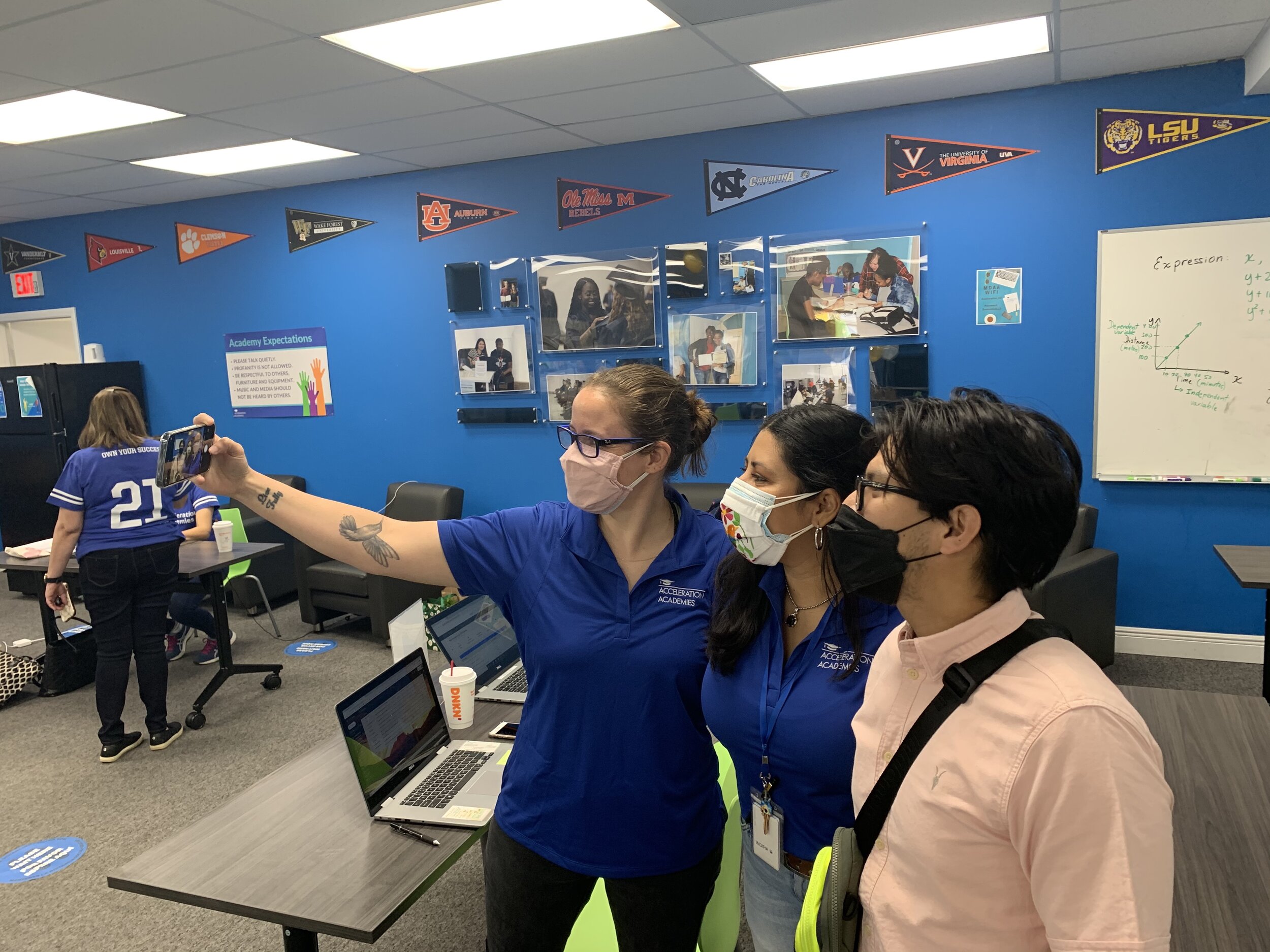Francesca C. Mardis: ‘Where You’re From Isn’t Nearly as Important as Where You’re Going’
September 1, 2021 | Jeffrey Good

When you hear the term “registrar,” what image comes to mind? Perhaps someone who helps students fill out forms, organizes transcripts and completes enrollments, and makes the behind-the-scenes machinery of a school operate without a hitch.
Miami-Dade Acceleration Academies Registrar Francesca C. Mardis does all that — and much, much more.
Many MDAA students come from immigrant families, are unfamiliar with the American education system, are just learning English and are striving to become U.S. citizens. Mardis sees herself as a bridge for them and their families to a new land of opportunity.
“I want to remove that stigma,” she says of the shame some newcomers feel in trying to navigate American systems. “Where you’re from isn’t nearly as important as where you’re going.”
In addition to the other demands of her job, Mardis has volunteered to audit citizenship classes in Miami and Broward counties during her lunch breaks and after-work hours. She says it’s a way to help graduation candidates and their families prepare for the challenging tests they must pass to become American citizens.
“The least I could do is educate myself so I can help them,” she says.
The material is not easy to master. Would-be citizens must steep themselves in such questions as the rights and responsibilities of U.S. citizens, the branches of government and their powers, key dates in history and what protections the Bill of Rights offers.
Many of the questions are challengin, and many American-born high schoolers and adults would have a hard time answering them correctly. And, of course, all the questions and answers are in English, she adds. “It’s not easy to talk about a country’s government in what is your 2nd, 3rd or 4th language.”
“If I asked you which was the last state added to Nicaragua, you and I would probably have to resort to a Google search,” she says. “A lot of what I do is remove the stigma or the shame of not knowing something. It’s okay not to know everything.”
If Mardis is sensitive to the immigrant experience, it’s because she lives it. Her mother immigrated from Sicily with parents who knew so little English that a kind-hearted neighbor had to help them enroll in public school. She grew up on Calle Ocho in Miami’s Little Havana neighborhood, and her parents still live there. Mardis’s wife, fellow MDAA educator Indira, was born in Nicaragua, and they are raising their sons as Americans who take pride in their family’s international roots.
“Pretty much everyone in my life is a first generation American or they weren’t born here,” she says.
Mardis worked as a paralegal and in residential management to pay her way through school one semester at a time, and she earned bachelor’s and master’s degrees in history. When she joins adult immigrants in the online citizenship courses, she’s not listening so much to learn the material as to identify the answers New Americans are struggling to learn.
“I get to observe where the struggle is, where is the most misunderstanding,” she says. From that observation, she knows where to focus in preparing MDAA learners for the exam. She also helps them and their loved ones navigate more everyday challenges, translating tricky government documents, tracking down transcripts from their native countries, helping them navigate a new and unfamiliar educational system.
The obstacles can be large, she says. To apply for lawful permanent residence, a “Green Card,” immigrants must pay a $1,070 fee, for instance.
“That’s a lot of money for us, and we don’t live in a poor country,” she says. Many of the graduation candidates who come to MDAA struggle to pay for nutritious food, clean clothing, feminine products, even a roof above their heads.
“Those are petty humiliations that come with poverty, and all my colleagues and I are trying to do is remove some of them,” she says.
The reward, she says, is seeing young men and women gain confidence, master academic material, then stride across the stage at graduation to claim their diplomas and their futures as contributing members of their new communities and nation.
“For many of them, this is their first big win. They need it,” she says. If they feel discouraged along the way, she and her fellow Acceleration Academies educators offer this message: “This is the key to your better life. Whatever you want to do in your future, it all starts here.”

